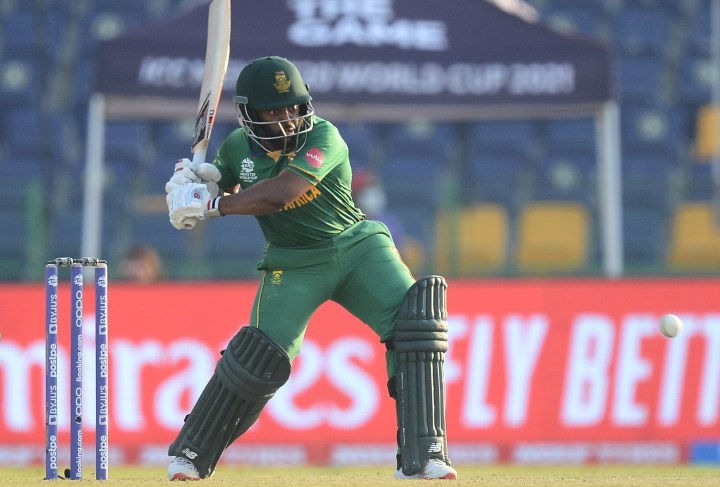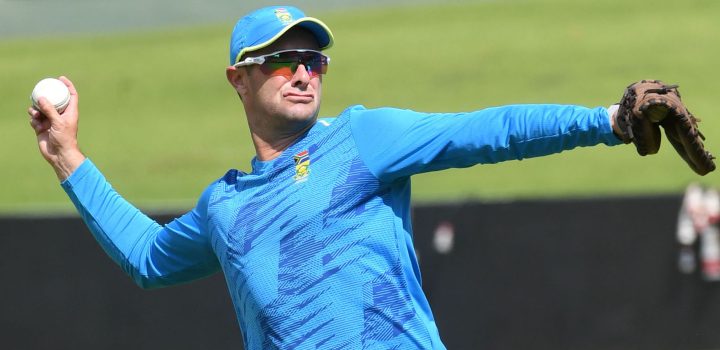CRICKET
Proteas hoping for a summer of success after a winter of discontent

The South Africans are determined to put a difficult year and a fraught T20 World Cup campaign, where on-field results were overshadowed by off-field matters, behind them to beat India.
To say it’s been a tough two years for South African cricket would be an understatement equivalent to saying Eskom is experiencing a few small technical issues.
Cricket South Africa (CSA) has been through two boards in that time (one an interim board) and is on its third since mid-2020 as it stabilises after years of corporate governance failures.
It’s certainly not fully healed on that score, but at least there is a more transparent framework in place, with a majority independent board to steer the business of cricket forward.
The Proteas team were obviously not immune from the boardroom drama, which also coincided with the outbreak of the Covid-19 pandemic. The team suffered in 2020 as new coach Mark Boucher was thrust into the job two weeks before a Test series against a formidable England in late 2019 and early 2020.
Losing that series, plunging into the pandemic, and having the series against England (again) and Australia cut short and postponed over Covid-19 fears, further eroded development.
All this also played out against the backdrop of the Black Lives Matter movement and the Social Justice and Nation-Building (SJN) initiative, which have added a new dimension to cricket’s issues.
The simple gesture of taking the knee as a signal of antiracism simmered before it exploded at the T20 World Cup when CSA demanded players take the knee. Quinton de Kock refused and withdrew from a match against the West Indies, leaving captain Temba Bavuma to pick up the pieces.
And the SJN exposed racial fault lines in the cricket establishment, many valid and worrying, but some manufactured to deflect from match-fixing crimes.
Boucher was named as one of several players who racially abused former teammate Paul Adams in a team song years ago. He has apologised and written a submission to the SJN. A full report from ombud Dumisa Ntsebeza is expected at the end of the month.

Mark Boucher during the South Africa national cricket team training session at SuperSport Park on 30 March 2021 in Pretoria, South Africa. (Photo: Lee Warren / Gallo Images / Getty Images)
Boucher will fight on
Because of his close friendship with director of cricket Graeme Smith (also appointed in late 2019), Boucher has been accused in some sectors of the media and public forums of receiving preferential treatment.
“Whatever I say, people will try to write it in a different way I suppose,” Boucher said this week. “I would be lying to say it has not been tough. It was tough probably for me, as an individual, and also on the team as well.
“We have had conversations and addressed the issues within the team and I would like to believe that I have their backing as well, after the sort of honest chats that we had.
“I know that there are a lot of media who probably don’t want me in this position. But my agenda has always been to try to get the best out of this group of players and get South Africa cricket to where I believe we should be — at the top again. Until anything else happens, I will continue to try to do that to the best of my ability,” he said.
India challenge
Boucher has survived, but he knows that the big all-format series against India this summer could be make or break. After winning four out of five games at the recent T20 World Cup but being eliminated on net run rate, the Proteas need to start winning something.
The summer starts with a white-ball series against the Netherlands, on an historic first tour of South Africa. Given the lengthy
biobubbles and tours the squad has endured this year, Bavuma and players such as Kagiso Rabada, Rassie van der Dussen, De Kock and Aiden Markram are being rested before the big business of facing India.
Victory over India, in seamer-friendly South African conditions, used to be almost a foregone conclusion. But the current Indian team is a different proposition, with world-class fast bowlers of its own and a batting unit that has managed two series wins in Australia and a series victory in England, in the past three years. Winning a Test series in South Africa is the only scalp missing from India’s impressive body of work.
In the past two years, India have played 15 Tests, mostly away from home, while the Proteas have played only nine. In white-ball cricket, the teams are more evenly matched, with India having played 15 ODIs in 2020 and 2021 and 24 T20Is. The Proteas have played 15 ODIs and 31 T20Is.
Which is why Boucher, when asked whether he felt under pressure and whether he and the team would emerge “unscathed” against India, played a verbal pull shot.
“Unscathed is a particularly interesting word to use, but we’re playing an India team at home that’s up there with the world’s best,” Boucher said.
“If you look at where we are as a Test group, we’re still growing and we’re still trying to find our feet with certain positions. It’s going to be a good challenge and a good test for us. We did well in the West Indies, but we haven’t played a Test at home in a while.
“It’s not about coming through unscathed, but going out there with an opportunity to do something special and beat India. If we don’t, we’ll obviously learn the lessons and come out as a better cricket team.”
On bended knee
While the issue of cricket is vital, the issue of the health of the squad environment is also important to address. Both Bavuma and Boucher believe the team culture is strong, and their performances at the T20 World Cup, despite the De Kock knee issue, support this with four wins in five matches.
Bavuma emerged as a leader with grace and empathy as he supported De Kock’s initial refusal to take the knee under duress, but he also hinted that the matter was not fully resolved.
CSA’s decree to the Proteas was that they should take the knee during the T20 World Cup. What happens beyond that, meaning this summer, is still open to interpretation and some level of confusion, which Bavuma highlighted when speaking to the media this week.
“As a South African cricket side, we have been put under immense pressure around this whole topic, more than any other international teams, more than any of our other local teams, for whatever reason that may be,” Bavuma said.
“The work and the effort that has gone on behind the scenes does not get enough attention or acknowledgement, probably because of the fact that people from the outside don’t get to see or hear the conversations that we have. Sometimes the pressure that is mounted on us is a bit unfair.
“Going forward, a decision is going to have to be a collective one. That’s an important thing. We want to avoid a situation where things are being dictated or instructed towards players.
“Importantly, how does it show in our everyday behaviour? Not just in our Proteas’ team, but within the country as a whole. Our country has big, big, big problems and that’s where the energy, in my opinion, should really be spent.”

Dean Elgar of South Africa during Day 1 of the second Betway Test match between South Africa and Sri Lanka at Imperial Wanderers on 3 January 2021 in Johannesburg, South Africa. (Photo: Sydney Seshibedi / Getty Images / Gallo Images)
CSA board chairperson Lawson Naidoo added to the general confusion when he said that more consultation was necessary around the issue of taking the knee.
“The position of the board is clear that we want the team to take a unified stance against racism,” Naidoo said. “We will engage with them. But we want a clear and consistent approach.”
But as the debacle in the UAE showed, the players, through many culture camps and long discussions had not found a collective stance. It may be a gesture that is universally well intended, but it still remains a personal decision, and it has the potential to divide the squad, something which Bavuma acknowledged.
“Originally what was decided was the team would take the opportunity to show their gesture in their own particular way,” Bavuma said. “Things changed at the World Cup.
“As a team, we haven’t spoken yet [about the position this summer]. Everyone will have to get together. A guy like [Test captain] Dean Elgar will have to be a part of the conversation to see how we are going to do things.
“It’s a conversation that still needs to happen and I would assume all decision-makers, all role-players will be involved in that decision. You will find a situation where it’s the team, the board, probably Graeme Smith and then a decision will be made on that.
“There were matters that happened off the field [at the T20 World Cup] that put us under pressure and there were challenging times as a team.
“It was moments that could have broken us or brought us together. There’s a lot of growth as a team,” he said. “I was tested as well. I was put in situations that are very hard for one to prepare for.
“I am grateful that I was able to get out of those situations. I am a lot more confident. In terms of the trust, in terms of the backing of each other and the confidence in each other, we are in a better space as a team going forward.”
Considering the on-field challenges that lie ahead, that can only be a good thing. DM168
This story first appeared in our weekly Daily Maverick 168 newspaper which is available for R25 at Pick n Pay, Exclusive Books and airport bookstores. For your nearest stockist, please click here.



















 Become an Insider
Become an Insider
The proof will be in the pudding. If we lose badly against India, player morale will simply be gone, and could result in all kind of changes in the national set-up, especially at administrative level. But I just think the CSA will continue to interfere in things a board should not do, like player selection, and the issuing of instructions that have nothing to do with the game itself.
South Africa lost in the I20 on slow run rate. They lost in the first few games when Bavuma opened the batting – he was too slow. Later he moved to 6 but too late. He really should be at 7 in case of collapse. But he did show class as a captain, the way he handled the De Kock controversy over bending the knee.